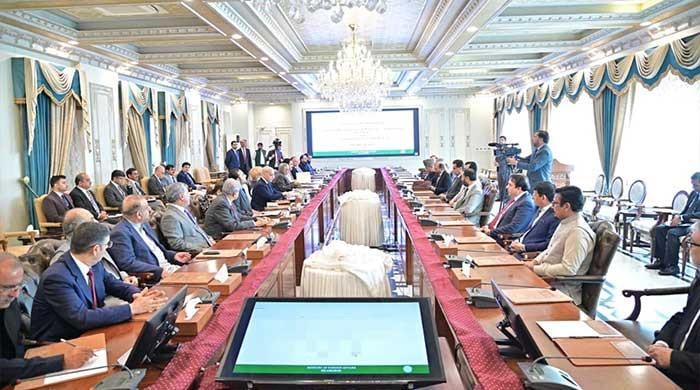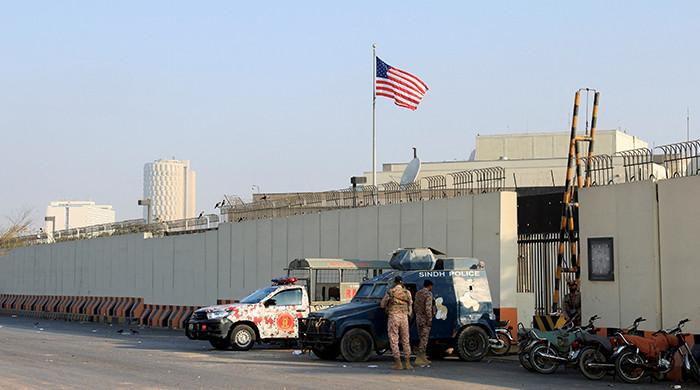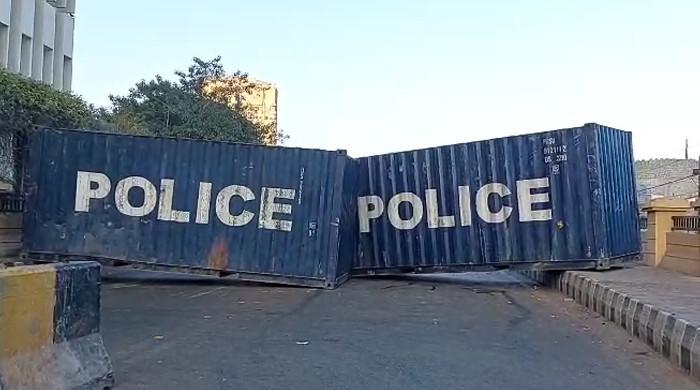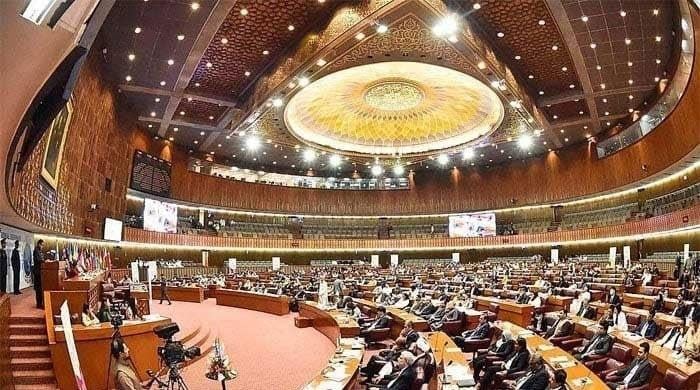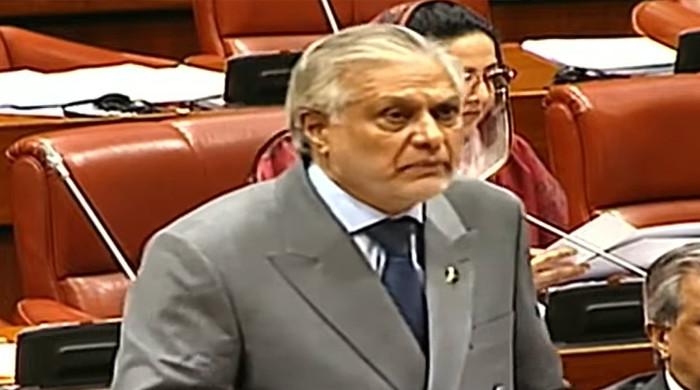Think-tank urges Parliament to address multidimensional character of extremism
ISLAMABAD: The state should realise the extremism that has crept in the society over the years, in all segments of the society. A great role is due upon parliamentarians, who can help confront...
May 25, 2017
ISLAMABAD: The state should realise the extremism that has crept in the society over the years, in all segments of the society. A great role is due upon parliamentarians, who can help confront the issue by instilling a fresh narrative, overseeing policies impacting internal peace, tightening rules and procedures of extremist-fighting bodies, and above all holding debates on the causes and remedies of extremism.
These recommendations came at the launch of a report, “National Strategy of Inclusive Pakistan”, organised by Pak Institute for Peace Studies (PIPS), an Islamabad-based think-tank.
The strategy, aimed at countering extremism, was extracted from the findings of the ten national-level consultations, each session discussing one specific theme or entry point, extracted from the years of work of PIPS.
The report noted that the road to security in Pakistan lies in diversity. Pakistan is a diverse country, with a diverse group of people, having diverse opinions; escape from the diversity is inescapable.
The report calls for the parliament, representative of diverse thoughts, to initiate a debate on how to promote inclusivity and on what went wrong. Additionally, the body can fix rules and procedures of the policies confronting militancy.
The entire sessions of the parliament can be live-streamed or a dedicated channel allocated to it so that people know not only about the input of the parliamentarians but the different shades of arguments otherwise missing.
Raja Zafarul Haq, Leader of the House in Senate, was the chair of the session, vowed to bring a resolution in the Senate to constitute “committee of the whole” to address the issue of extremism confronting the country.
The “National Strategy of Inclusive Pakistan” also notes how militancy revolves around exclusion. Extremists not only attack non-Muslims, a marginalised group but also thrive in excluded territories like the tribal areas. This should be explored and addressed.
Senator Farhatullah Babar called upon the government to look at the “exclusivity” of these areas. He wondered why the process of mainstreaming FATA was stopped, asking the government to immediately mainstream the area, as committed.
Tariq Pervez founding head of National Counter Terrorism Authority (NACTA) and former chief of Federal Investigation Agency (FIA), while speaking at the seminar raised questions about the sustainability of the recent successes against the militants.
“This is the biggest question whether the successes made against the militants would sustain or not, I doubt that they would sustain,” said Tariq Pervez.
Tariq Parvez added that when it comes to National Action Plan, much of the progress has been military-driven, involving military or paramilitary forces. Concurring with the report, he called for empowering police to take lead on counterterrorism.
The CVE strategy, it was noted, should comprise of soft approaches, which takes into account measures that tackle extremism in the long run. As of now, most of the measures are reactive and knee-jerk. The groups noted that fighting militants on the ground is as important as neutralising them without necessarily pick up fights, such as by reintegrating them after meeting certain conditions.
Dr Jaffar Ahmed, Karachi University, argued that for all the intellectual debates aimed at ridding Pakistan of extremism, there has been a consensus Pakistan’s Constitution should be the main source of theoretical and operational guidance. Dr Khalid Masud, former Chairman of Council of Islamic Ideology, said the 1973 Constitution was an important step towards inclusive Pakistan.
Participants argued eliminating extremism is onerous task, but possible. Taking part in the discussion, Senator Jehanzaib Jamaldini even called for revisiting the entire state-society structure, as the entire society has become radicalised.
Meanwhile, journalist Saleem Safi noted that extremism is multi-dimensional in character; while there has been a lot of focus on one or the other component, like ideological, the issue of extremism has not been approached in its entirety.
Adviser to the Prime Minister Zafarullah Khan assured the participants that the government understands the gravity of the problem and has been brainstorming about it.
Earlier, introducing the report, PIPS' director Muhammad Amir Rana, observed that violent extremism in Pakistan is a multi-dimensional phenomenon, permeates across different segments. And because extremism has permeated in different sections of society, the antidote lies in treating counter-extremism as a cross-cutting issue, to be reflected in all policies and actions.
Other speakers included Afrasiab Khattak, former senator; Ghazi Salahuddin, columnist, and Muhammad Ziauddin, senior journalist.
The 10 themes or entry points of the consultations discussed: approaching religious thought to annul extremism; reintegrating and rehabilitating militants, holding national dialogue and reviewing social contract; implementing National Action Plan; exploring link of extremism to constitution, citizenship and governance; engaging youth; approaching media, exploring cultural diversity and pluralistic voices; reforming education; and responding to internal security challenge.




